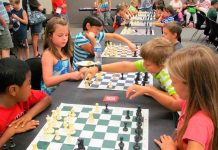Чёрная Марина Владимировна
МКОУ «Рыканская средняя общеобразовательная школа»
Учитель английского языка
Внеклассное мероприятие на тему: «Passive Voice»
Цели:
1. Совершенствование грамматических навыков по теме «Пассивный залог».
2. Тренировка навыков диалогической и монологической речи.
3. Развитие логического и образного мышления.
Сопутствующая задача: развитие речевого умения учащихся
Оборудование: карточки с заданием «Составь предложение»; жетоны-палочки; картинки для составления предложений.
Ход мероприятия
I. Организационный момент
Teacher: Good morning, my dear boys and girls!
Pupils: Good morning, teacher!
Teacher: Today we shall have a competition on the topic «Passive Voice». You will play games, sing songs and recite poems. If you do my task well, you will get a «stick».
II. Выполнение заданий
Teacher: The first task for you is to remember the forms of the irregular verbs.
Учитель предлагает учащимся вспомнить вторую и третью формы неправильных глаголов. Для этого учитель и учащиеся встают в круг. Учитель начинает игру и кидает мяч кому-либо из детей, называя первую форму неправильного глагола. Ученик ловит мяч и называет вторую и третью формы данного глагола. Затем он называет следующий глагол и бросает мяч следующему ученику. За каждый правильный вариант ответа ученик получа ет один жетон.
Глаголы на доске:
Do — did — done Build — built — built
Bring — brought — brought Swim— swam — swum
Give — gave — given Learn — learnt — learnt
Have — had — had Sell — sold — sold
Say — said — said Buy — bought — bought
See — saw — seen Meet — met — met
Be — was/were — been Take — took — taken
Build — built — built Speak — spoke — spoken
Write — wrote — written Make — made — made
Teacher: I want you to look at the blackboard. You can see six pictures on it. You will make up the sentences using the Passive Voice and describe the pictures.
Учитель привлекает внимание учащихся к картинкам на до ске. Каждая картинка сопровождается словом — обстоятельст вом времени:
1 — yesterday;
2 — every evening;
3 — tomorrow;
4 — last week;
5 — every day;
6 — next Friday.
Ученики называют номер картинки и составляют предложение для его описания. Учителю необходимо подобрать картинки, по которым можно составить 3—5 предложений. За каждое правиль но составленное предложение ученик получает 2 жетона.
Pupils: The book was read yesterday. The film is watched every evening. The room will be cleaned tomorrow. The toy was made last week. The homework is done every day. The pencils will be bought next Friday.
Teacher: Now it’s time to ask the questions. I shall read the sentences and name the special word. You will ask the questions to my sentences.
Учитель предлагает учащимся прослушать предложения и задать к ним специальные вопросы. Слово, с которого должен начинаться вопрос, учитель сообщает после прочтения пред ложения. Данное задание может быть оформлено на карточках или на доске, если учитель предполагает, что у детей возникнут трудности с запоминанием предложения на слух. За каждый правильный вопрос ученик получает 1 жетон.
Teacher: The flowers were planted last month.
Pupils: When were the flowers planted?
Teacher: This house was built in 1991.
Pupils: What was built in 1991?
Teacher: The TV set was bought in the shop.
Pupils: Where was the TV set bought?
Teacher: Football is played all over the world because it is a very popu lar game.
Pupils: Why is football played all over the world?
Teacher: English is spoken in Great Britain.
Pupils: What language is spoken in Great Britain?
Teacher: Cheese is made from milk.
Pupils: What is made from milk?
Teacher: The letter will be answered next week.
Pupils: When will the letter be answered?
Teacher: The pupils will be met in the garden.
Pupils: Where will the pupils be met?
Teacher: The poem will be learnt in two days.
Pupils: Why will the poem be learnt in two days?
Teacher: Now it’s time to play. You will work in pairs and put the words iii the logical order in the following sentences.
Для выполнения следующего задания учащиеся делятся на пары. Задание для учащихся: поставить слова по порядку и за писать предложения на карточке. Время выполнения задания -3-4 минуты. Проверка задания осуществляется следующим об разом: пары учащихся по очереди зачитывают по одному предло жения, каждый ученик в паре получает один жетон, если пред ложение составлено без ошибок.
Задание на карточке:
1. Discovered, in, America, 1942, was.
2. In the morning, the newspaper, not, brought, is.
3. Monday, written, next, the letter, will be.
4. Every, two, given, are, apples, day.
5. Yesterday, photo, taken, that, was.
6. Not, tomorrow, be, will, the news, told.
Pupils: America was discovered in 1942. The newspaper is not brought in the morning. The letter will be written next Monday. Two apples are given every day. That photo was taken yesterday. The news will not told tomorrow.
Teacher: Will you look at the blackboard? You have to change the sentences to use passive structures.
Учитель привлекает внимание учащихся к предложениям на доске. Ученики по очереди зачитывают предложения в активном залоге и изменяют их, используя пассивный залог. Ученик полу чает один жетон, если он правильно изменил предложение.
Предложения на доске:
1. Ann cleans her room every week.
2. People build new houses in big cities.
3. We bought oranges and pears in the shop.
4. They sold stamps in the post office.
5. Children will play hide-and-seek in the park.
6. They will show the cartoons in the evening.
7. I will not take my sister to the History Museum.
8. Pupils didn’t visit the boy last week.
9. We don’t translate poem at home.
Pupils: Ann’s room is cleaned every week. New houses are built in big cities. Oranges and pears were bought in the shop. Stamps were sold in the post office. Hide-and-seek will be played in the park. The cartoons will be shown in the evening. My sister will not be taken to the History Museum. The boy was not visited last week. Poems are not translated at home.
Teacher: Do you like to recite the poems and sing songs? Will you recite any poems and sing songs? Can you use the Passive Voice in them?
Ученики представляют заранее разученные стихотворения и песни, в которых использованы пассивные конструкции. Одно и то же стихотворение может быть представлено несколькими учениками по очереди. Стихотворения для данного конкурса разучиваются учениками или во время уроков, или во время внеклассной работы по предмету.
Pupils: Come when you’re called,
Do as you are bid,
Shut the door after you,
Never be chid.
Pupils: Hector Protector was dressed all in green;
Hector Protector was sent to the Queen.
The Queen didn’t like him,
No more did the King;
So Hector Protector was sent back again.
Pupils: Tea is prepared from the leaf of a tree,
Honey is gathered and made by a bee;
Butter is made from the milk of the cow,
Pork is the flesh of the pig or the sow;
Oil is obtained from fish and from flax,
Paper is made from straw and from rags.
Worsted is made from wool soft and warm,
Silk is prepared and spun by a worm.
Pupils: What are little boys made of?
What are little boys made of?
Frogs and snails,
And puppy dogs’ tails,
That’s what little boys are made of.
What are little girls made of?
What are little girls made of?
Sugar and spice,
And all that’s nice,
That’s what little girls are made of.
III. Подведение итогов
Teacher: Thank you for your work. I can see you are good at grammar. You can use the Passive and Active Voice very well. Now it’s time to finish our work.
Teacher: «Good-bye, pupils!»
Pupils: “Good—bye”, teacher!
Список используемой литературы
-
Биболетова М.З. Учебник английского языка «Enjoy English» для 7 класса. – Обнинск: Титул, 2011.Биболетова 7 класс.
-
Биболетова М.З. Рабочая тетрадь к учебнику английского языка «Enjoy English» для 7 класса. – Обнинск: Титул, 2011.Биболетова 7 класс.





